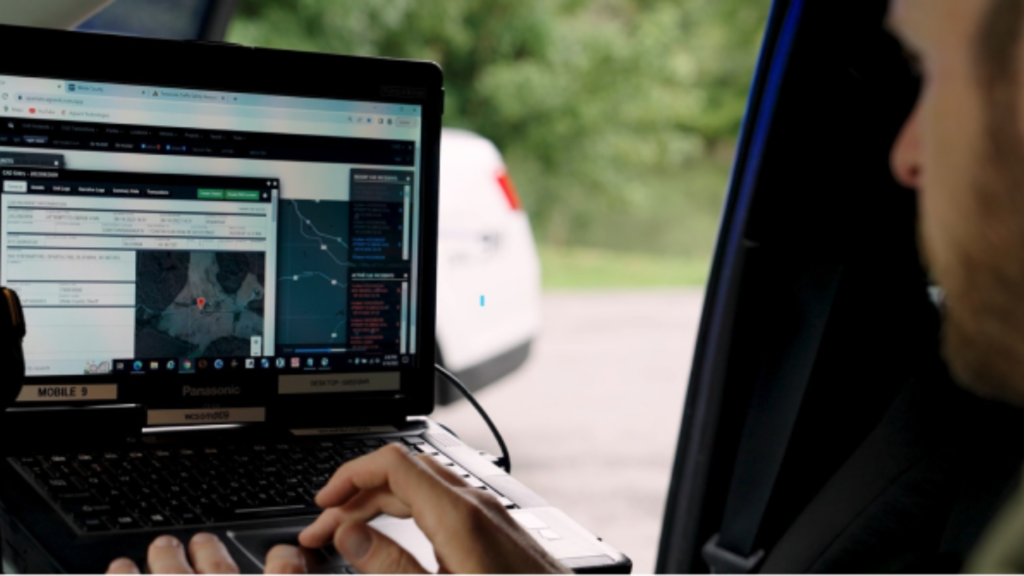Many crimes and criminals have a vehicle associated with them. As a result, it’s critical for law enforcement agencies to store vehicle histories and information in their records management systems for future agency-wide access.
In this blog, we’ll explore how modern records management system (RMS) software can help law enforcement agencies search and store vehicle information efficiently and effectively. Specifically, we’ll consider the importance of cloud-based hosting, search speed, advanced search tools, and more when conducting vehicle searches in your RMS.
Let’s dive in.
The Importance of Vehicle History Searches in Law Enforcement
Vehicle history is crucial for law enforcement operations in many ways. Primarily, vehicle history can provide essential information that can make or break an investigation.
Understanding a vehicle’s history can offer crucial insights into a wide range of scenarios. For instance, during criminal investigations, detailed vehicle histories can help trace suspect movements, link vehicles to crime scenes, or uncover patterns that may not be immediately apparent.

In traffic incidents, knowing the history of the vehicles involved can reveal past accidents, mechanical issues, or ownership details that might influence the investigation’s outcome.
Similarly, in cases of stolen vehicles, a comprehensive vehicle history can assist in quickly identifying and recovering a vehicle, as well as understanding any modifications or changes made since the theft.
In these scenarios and others, it’s important for law enforcement agencies to have efficient and accurate access to vehicle databases and information.
Challenges of Outdated RMS Vehicle History Searches
However, law enforcement agencies often face significant challenges when attempting to conduct vehicle history searches without an efficient RMS.
Manual data retrieval, for example, can be time-consuming and prone to errors, which can lead to delays in crucial investigations. Plus, outdated RMS systems can make it challenging to ensure the consistency and completeness of records, which can further complicate the search process. This ultimately causes frustration and can hinder the resolution of cases.
Without modern technology, the accuracy and reliability of the information obtained can be compromised, impacting the overall effectiveness of law enforcement operations. And in scenarios like these, officers don’t have time to wait for any vehicle information that’s needed to progress investigations and case proceedings.
How Advanced RMS Software Enhances Vehicle History Searches
As a result, adopting advanced RMS software is not just a matter of staying on top of industry trends but also a pivotal step toward equipping law enforcement officers with the tools they need to serve and protect their communities effectively.
Here are some of the key ways that RMS software can support how law enforcement agencies efficiently conduct vehicle and vehicle history searches:
Integrating RMS and Key Databases
Advanced RMS software can directly integrate vehicle databases in your RMS with other relevant third-party technologies. Through integration, agencies can consolidate and centralize important information databases in a single platform.
By centralizing these databases, agencies can increase the speed at which officers can access information. Additionally, by centralizing information, agencies can improve the cleanliness of data formatting. This can directly impact the accessibility and usability of stored vehicle data.
Primarily with integrated software, officers can collapse multi-step processes into singular steps. Advanced RMS software can support this level of integration and then, ultimately, improve the flow of information across an entire agency.
Cloud-Based Access
Cloud-based access is an important feature of any advanced RMS software. By being cloud-based, officers can access vehicle history and information on-the-go, without having to return to the office.
This is especially important in scenarios in which officers encounter vehicles that are associated with potentially dangerous persons. With a cloud-based RMS, officers can quickly run a vehicle search and look for any important flags or persons information related to that vehicle via the master index. Access to this real-time information can ultimately keep officers and communities safer, too.

In addition, records management systems hosted on a cloud-based network allow officers to receive real-time updates while they’re out in the field. This can equip officers with real-time vehicle database updates, even while they’re out patrolling or on-the-go.
Advanced Search Functionalities and Filters
Modern RMS software can also equip law enforcement agencies with a variety of search functionalities to make vehicle information searches faster and more accurate. For example, emerging RMS software has a wide range of filters that officers can apply when running a vehicle search. This makes searches faster by narrowing down search results.
Additionally, some platforms, like CivicRMS, provide officers with additional tools to improve their recall of vehicle information as needed, such as quick access to photographs of vehicle makes and models. Officers utilize this feature to efficiently search the available make and models from a specific year. This, then, can improve the identification of vehicles in scenarios, as officers can rule out potential vehicles based on these various categories.
Advanced RMS technology can also conduct ‘free searches,’ instead of solely relying on intricate details of make and model, in instances in which those details were not immediately available. For example, with free search capability, officers can paste their narrative directly into their RMS, and then immediately conduct a search on the phrases contained within the narrative. This is incredibly useful for instances in which officers need to conduct a vehicle search but have few details to begin with.
Vehicle File Connection with Incident Reports
RMS technology can also allow officers to attach vehicle records directly to incident report records. This enables law enforcement agencies to create comprehensive records throughout their RMS software, ultimately by connecting all related crimes, persons, and vehicles.
Specifically, officers can attach a VIN to an incident report and connect existing vehicle records within the master index to relevant incident reports. This connection within the RMS and master index can also (as mentioned earlier) be important for officer safety, such as when interacting with vehicles that are linked to potentially dangerous persons or past incidents. With increased awareness of past incidents associated with a vehicle, officers benefit from increased situational awareness in potentially hazardous scenarios.
Officers can also use this information while patrolling to inform proactive policing efforts. When officers notice suspicious vehicle activity, for example, they can quickly conduct a vehicle search to view any associated incidents, related persons alerts, or other important factors.
Takeaways
Advanced RMS software can dramatically improve law enforcement agencies’ access to vehicle history databases and information. By integrating with third-party technologies, operating on cloud-based networks, featuring advanced search and filtering tools, and connecting vehicles to past incident reports, advanced RMS software can keep officers and communities alike safer.
As civilians continue to have increasing access to the latest technologies, it’s important that law enforcement agencies do too to best protect and serve their communities.
By leveraging RMS software for vehicle searches, law enforcement agencies can centralize information in an integrated database. Ultimately, this can improve the access and quality of vehicle data across an entire agency.
To learn more about the growing possibilities of vehicle history searches, vehicle databases, and other advanced developments in records management technology for law enforcement, click below.
GET IN TOUCH
To learn more about CivicRMS and schedule a demo, click here.
STAY IN THE LOOP
Follow CivicEye on LinkedIn – Facebook – Instagram – Twitter – YouTube.

